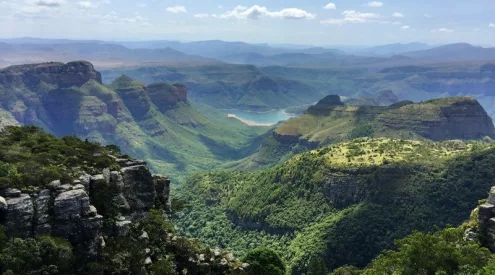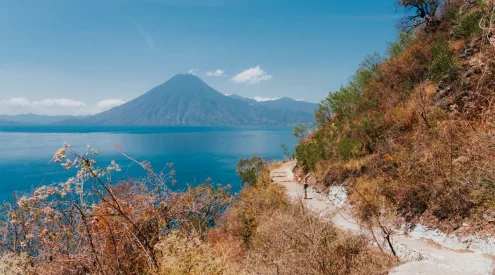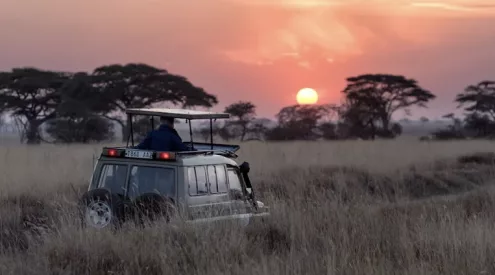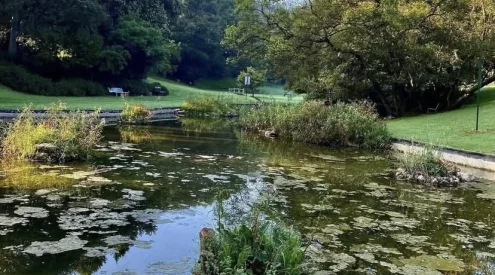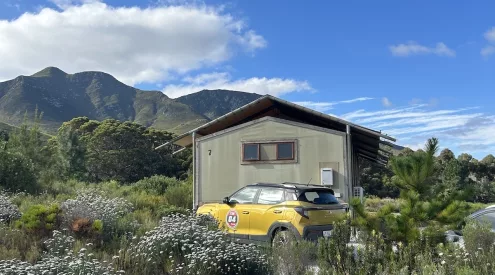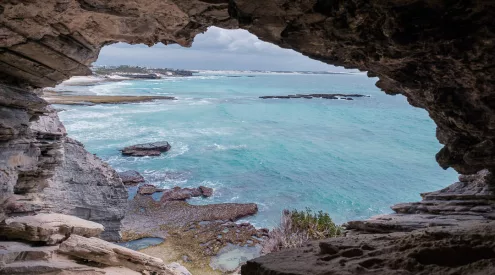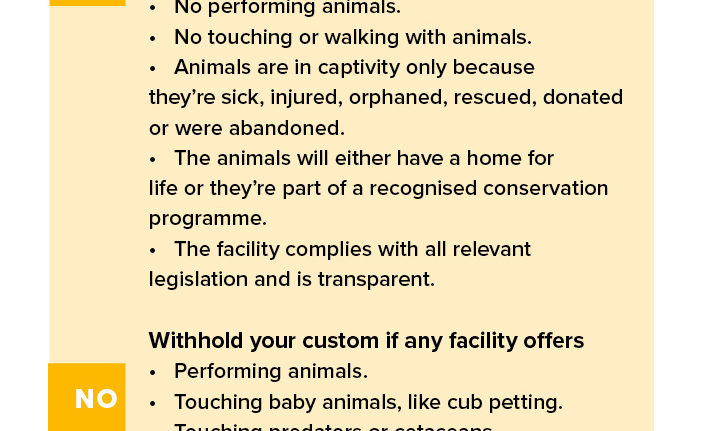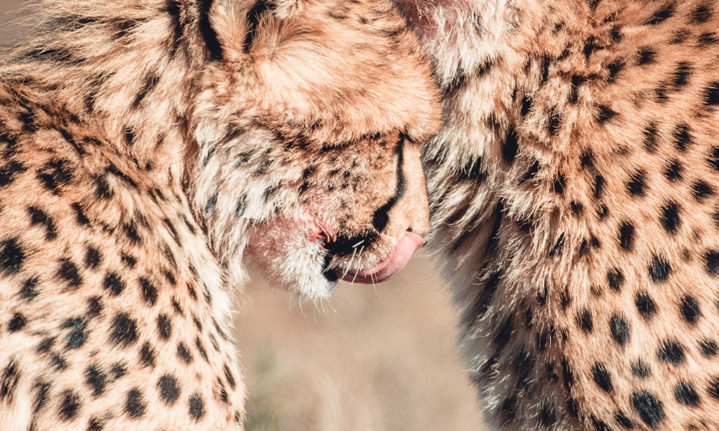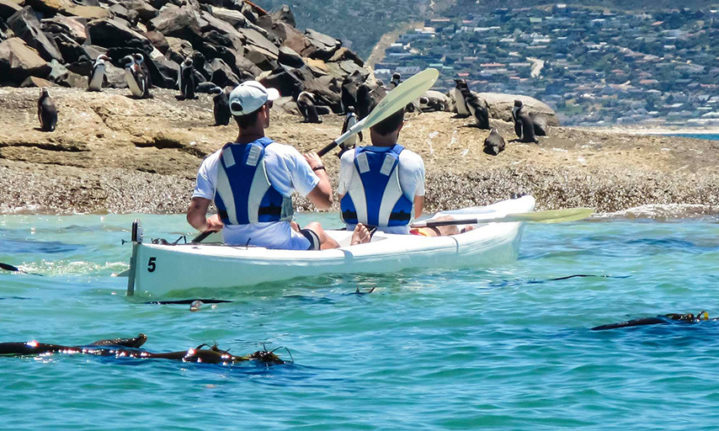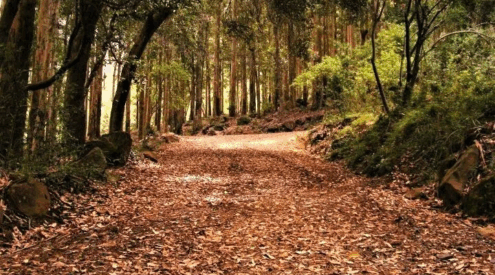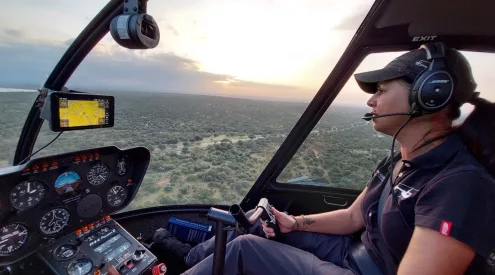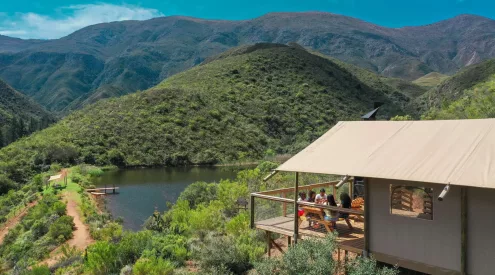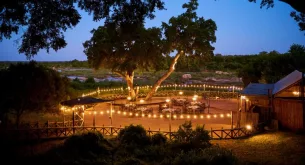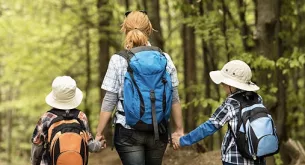Melanie van Zyl expounds on new guidelines that differentiate ethical wildlife experiences from undesirable ones.
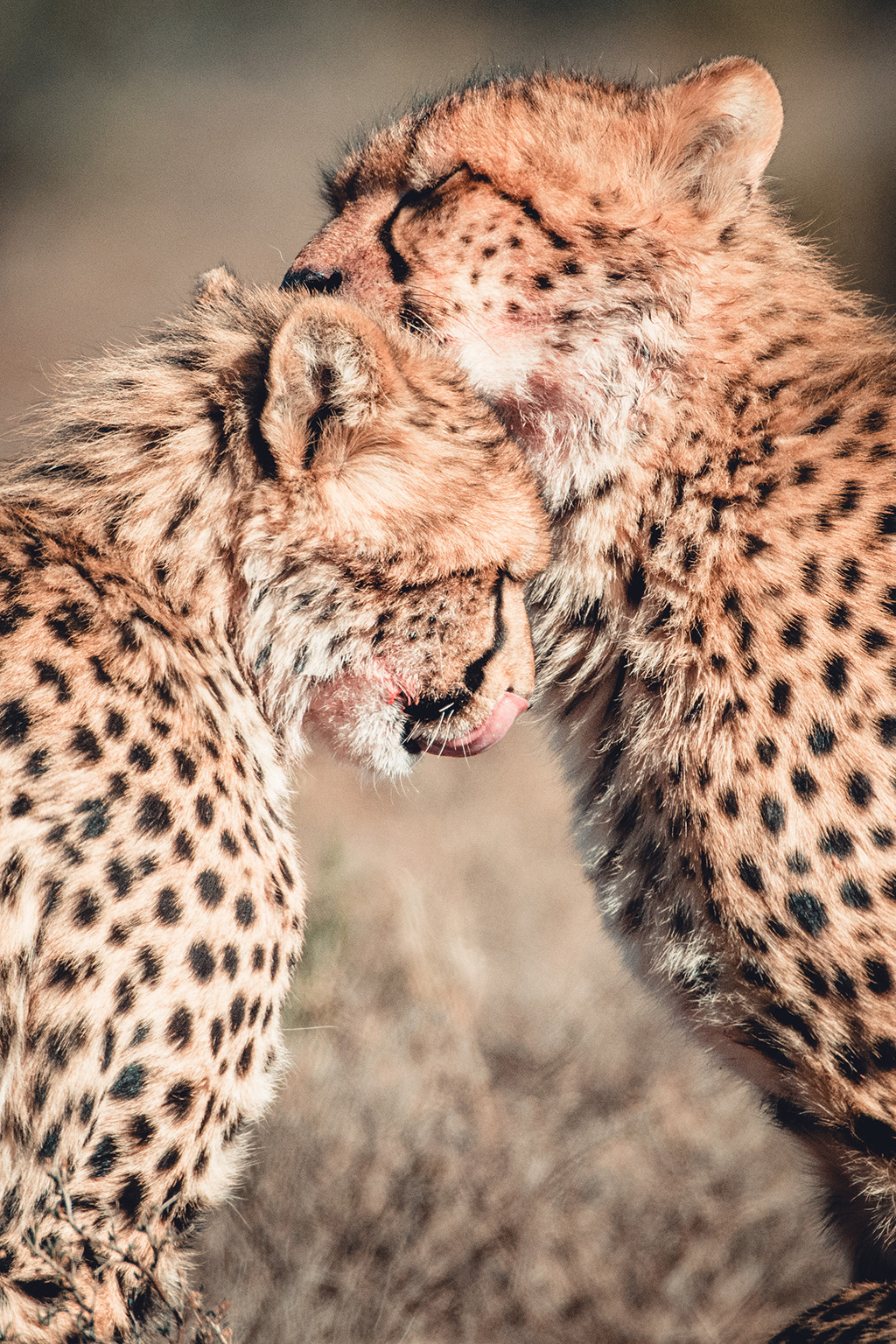
Cheetahs spotted at Samara on-foot. Image: Melanie van Zyl
Captive wildlife attractions and animal interactions remain a controversial issue, but the industry is changing, and it’s mostly thanks to tourists.
Growing awareness has visitors calling for conscious tourism, and to help them make informed choices the Southern Africa Tourism Services Association (Satsa) has released a toolkit of new guidelines to ethical animal encounters, which advise tourists not to endorse facilities that offer human-animal interactions, animal performances, or activities that involve unnatural animal behaviour.
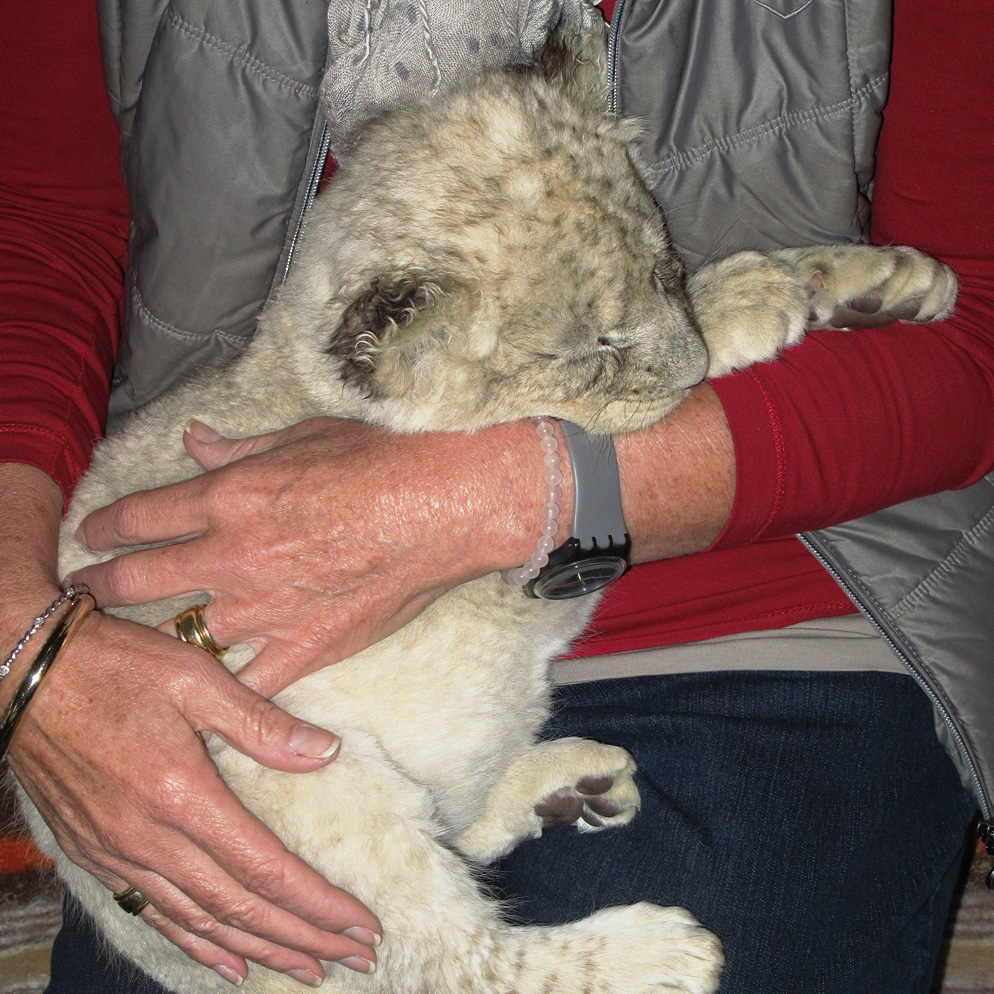
Cub petting is often linked to canned-lion hunting. Image: Ian Michler
Other tourism bodies and operators are also taking a stance. TripAdvisor has ended ticket sales to attractions that breed cetaceans (whales, dolphins and porpoises) or ‘continue to contribute to their captivity’. Airbnb has launched its own ethical experiences on their popular adventure platform, and G Adventures offers travellers a guilt-free guide to wildlife interactions.
Even Instagram has changed its tune. A search for ‘#lionselfie’ or other wild- animal selfies on the photo-sharing app triggers a pop-up notice informing viewers about animal abuse and social media that encourages harmful behaviour. Viewers are also invited to click through and learn more about wildlife exploitation.
Sadly, the South African government legislation is falling behind the curve. Cheetahs, lions, rhinos and zebras were among 32 wild species reclassified as farm animals in 2019, a move which could exacerbate the abuse of wildlife. The Department of Agriculture advised that the legislation changes were made with game breeders in mind, saying that ‘game animals are included as these are already part of farm-animal production systems in the country’.
Writing for Daily Maverick, ex-Getaway editor Don Pinnock suggests that the change could follow requests from game breeders who might benefit from an easing of constraints on the hunting and movement of protected animals.
Another reason for the change could be the success of the animal-encounter industry where activities like lion-cub petting and walking with lions have been linked to canned-lion hunting, as documented in the 2015 film Blood Lions.
Some facilities fall short of the new guidelines. Cub petting is still offered by operators near Johannesburg and elsewhere, and tourists can still ride elephants in Hazyview near Kruger National Park. Another well-entrenched activity is ostrich riding in Oudtshoorn.
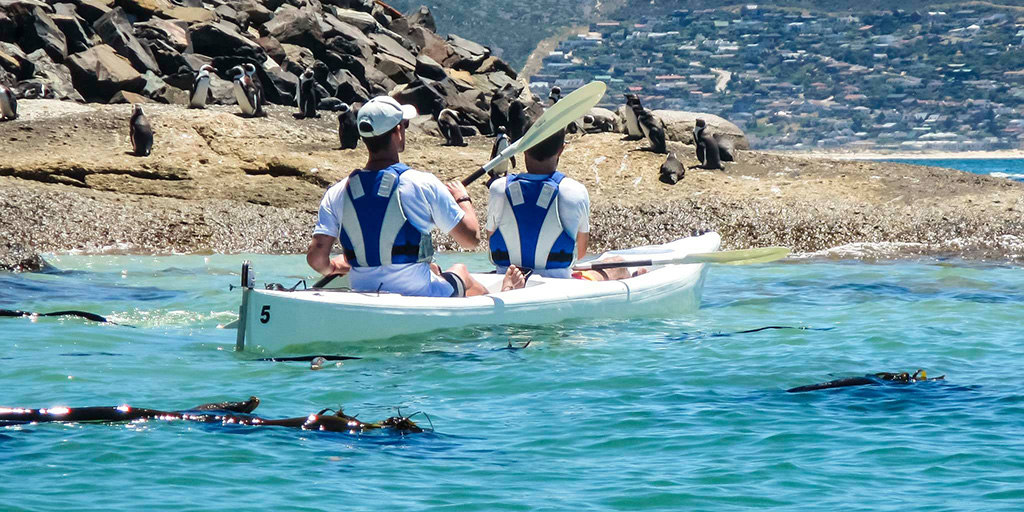
You can see penguins on their own terms while out paddling in Simon’s Town. Image: Melanie van Zyl
Most experts agree, if a wildlife facility offers riding, touching or even being photographed with a wild animal, the chances are the animal is ill-treated. The onus remains on consumers to say ‘yes’ or ‘no’ to visiting the establishment. Let’s face it, it’s always better to see animals doing their thing in their own space, not ours. The following activities are examples of ethical wildlife encounters:
1. Track cheetah in the Karoo
Join guides in Mountain Zebra National Park to see these lithe cats in their natural habitat. From R429 pp (age 12 and up). sanparks.org. You can also track cheetah at Samara Private Game Reserve. Stay over from R3,200 pp sharing. samara.co.za
2. Kayak with African penguins in Simon’s Town
Paddle the waters of False Bay to see African penguins off Boulders Beach in their own marine environment. From R355 pp for a two-hour trip. kayakcapetown.co.za
3. Go frogging in Mkhuze
Embark on an amphibious safari at Amakhosi Safari Lodge (available in the rainy season from November to March). Marvel at the spectrum of colours and amorous calls of mating frogs. Stay over from R3,116 pp. amakhosi.com
4. See turtles nesting at iSimangaliso Wetland Park
Join a turtle tour from October to March and witness this ancient rite. Each year loggerhead and leatherback turtles return to the beaches of northern KwaZulu-Natal to nest. R850 pp. ufuduturtletours.co.za
5. Swim with seals off Hout Bay
Snorkel with the ocean’s friendliest sea creature. Duiker Island is located within the Marine-Protected Area of Table Mountain National Park, which means that commercial activities must always be sustainable. From R990 pp. sealsnorkeling.com
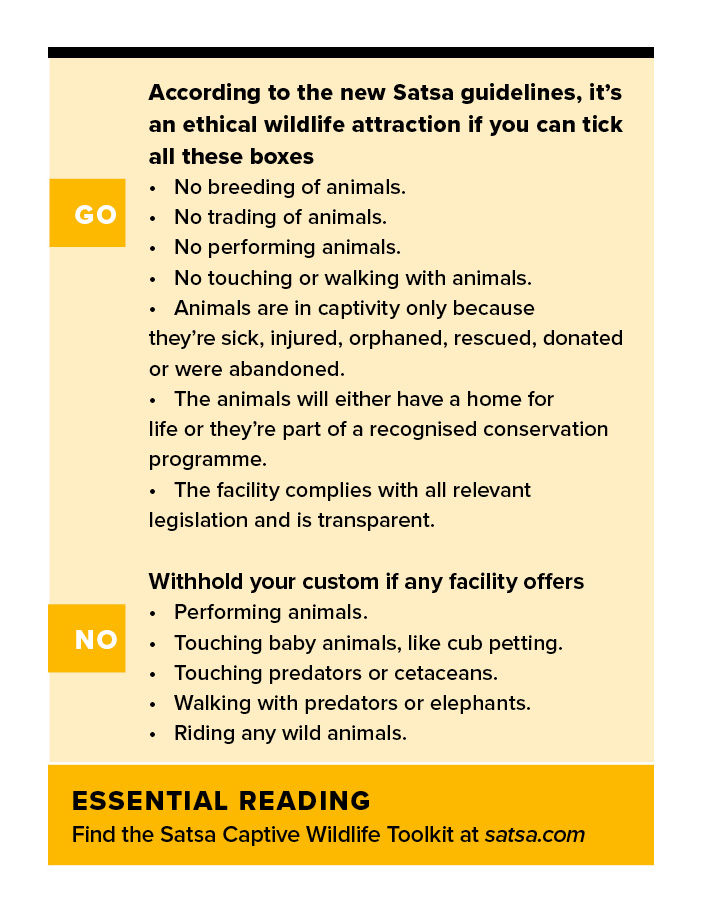
Featured image by Melanie van Zyl
This article was first published in the April 2020 issue of Getaway magazine.
Get this issue →
All prices correct at publication, but are subject to change at each establishment’s discretion. Please check with them before booking or buying.



